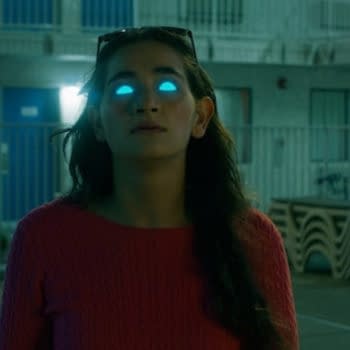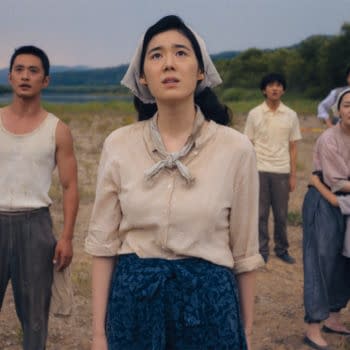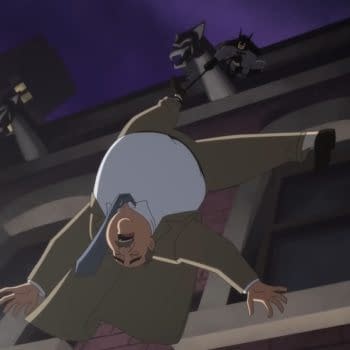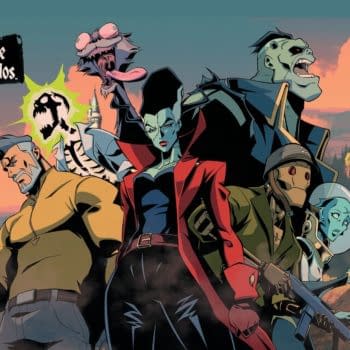Posted in: TV | Tagged: Episode 15, Liu Cixin, Review, TenCent, The Three-Body Problem
The Three-Body Problem Ep. 15 Review: Goofy Human Computer Sim Game
The Three-Body Problem Ep. 15 is the goofiest episode of them all, but it features a whole country of people turned into a living computer.
Episode fifteen of The Three-Body Problem moves away from Science Grandma's story in the Cultural Revolution just when things were about to get interesting. We go back to the online VR game that's all the rage with scientists and intellectuals for the goofiest episode in the whole series. That's right, we've come to the "turn a whole country's people into a single living computer" part of the story.

Shi Qiang (Yu He Wei) is still waiting for General Chang (Lin Yong Jian) to get Science Grandma Ye Wen Jie's file declassified so he can find out the missing parts of her story at the Red Coast base. Wang Miao (Edward Zhang) decides to dive deeper into the Three-Body Problem VR game to solve it. It's a trick riddle by his daughter that makes him realise the answer to the game is in plain sight: it was right there in the title all along.
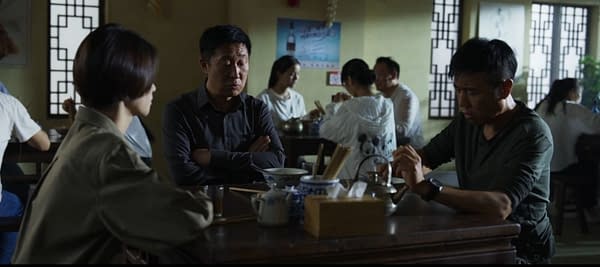
The Three-Body Problem Game is Goofy AF
Wang Miao enters the game under the mantle of Copernicus and comes to a version of the Holy Roman Empire where players roleplaying as da Vinci, Galileo, and Aristotle argue and insult each other over whether philosophy or scientific observation is the best method to predict the sun's movements so they can anticipate the next Unstable Era where life in the game world is wiped out either by extreme heat or an ice age. Wang Miao surprises them by pointing out that there are really three suns, and the planet is at the mercy of their gravity whenever it gets into their orbit. The other players scoff that three suns have never been recorded in the histories of previous civilizations that players use to form their ideas. Wang Miao points out the reason is the world was destroyed so fast that nobody had a chance to make a record of the appearance of three suns in the sky. This is a game where the final boss fight is to present one's theory or device to the figure in authority, in this case, Pope Gregory. Wang Miao is nearly burned at the stake until his hypothesis is proven right – the three suns align and destroy the world, ending the game. Wang Miao hitting the right answer has moved the game to the next level when the next time players log in.
The Three-Body Problem Game is Nutty History Fanfic
The game is like a high concept and more impenetrable version of Civilisation, a history and physics simulation where players take on the identities of famous figures from history and use their skills to solve the Three-Body Problem. This is where the Uncanny Valley of slightly dodgy CGI makes the figures look weird and goofy, like we're back with 2007 video game cutscenes, which makes some sense as the story is set in 2007. Players compete and troll each other. Infighting and abuse are rife because, let's face it, gamers are dicks. Western figures like da Vinci and Isaac Newton are voiced and played as weirdly swishy and could be seen as rather homophobic in a country that has effectively banned portrayals of overtly gay characters, but perhaps they make an exception for white guys from the decadent West because they're all Capitalist homosexuals, right? The campiness is more the show's decision than the book's, though the satirical bickering between the scientists and philosophers is one of the few times author Liu Cixin showed his sense of humour.
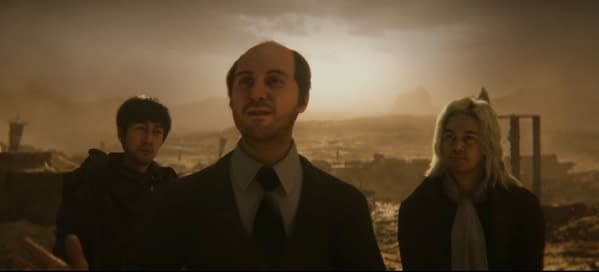
The Giant Living Computer, Both Awesome and Nutty
When Wang Miao logs into the next civilization in The Three-Body Problem, he finds himself in a civilization ruled by China's first emperor Qin Xi Huang. He meets Isaac Newton driving Leibniz off in a duel before computer pioneer John von Neumann shows up and announces he plans to build a computer using the kingdom's thirty million soldiers as its components, with the permission of Emperor Qin.
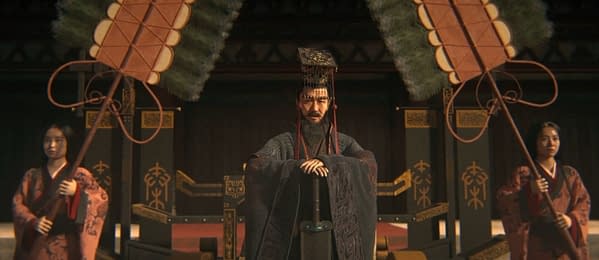
Von Neumann makes good on his plans when Qin Shi Huang lets him order and refine every man in the kingdom – there doesn't seem to be women – into formations waving white and red lanterns as stand-ins for zero and one. What follows is the refinement of the building of the giant living computer, refining commands and order to create what's effectively an analogue operating system. Vocal orders are the software. Faulty parts – men who fail to carry out an order and send the right signal – are rejected by the emperor, who orders them beheaded. The men are clearly NPCs with their uniform likenesses. The giant living computer becomes a metaphor for the Qin Dynasty's utter ruthless harnessing of the people into a single machine. That might also be what the current Chinese government wants to do when the time comes. And now, they have to get the computer ready to observe and calculate the trajectory of the three suns.
Some fan is totally going to make a mod of this part of The Three-Body Problem game using his copy of Civilization.
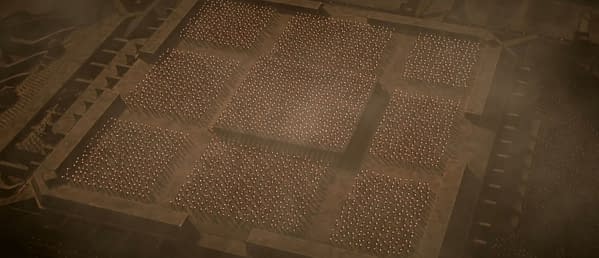
Once Again, Slow Plot, All Science
The plot hardly moves forward again to immerse the viewers in the Three-Body game. For fans, the human computer is the moment they were gagging to see, but for many of us, it's way too much dodgy CGI and stiff Qin soldiers as extras. We prefer to see human drama impacted by the science driving the story, and we've seen way too much dodgy cutscenes from the late Xbox 360 days. But hey, it's 2007 here, and we can reminisce about playing Halo back when it was good while we wait for the human drama to come back.




